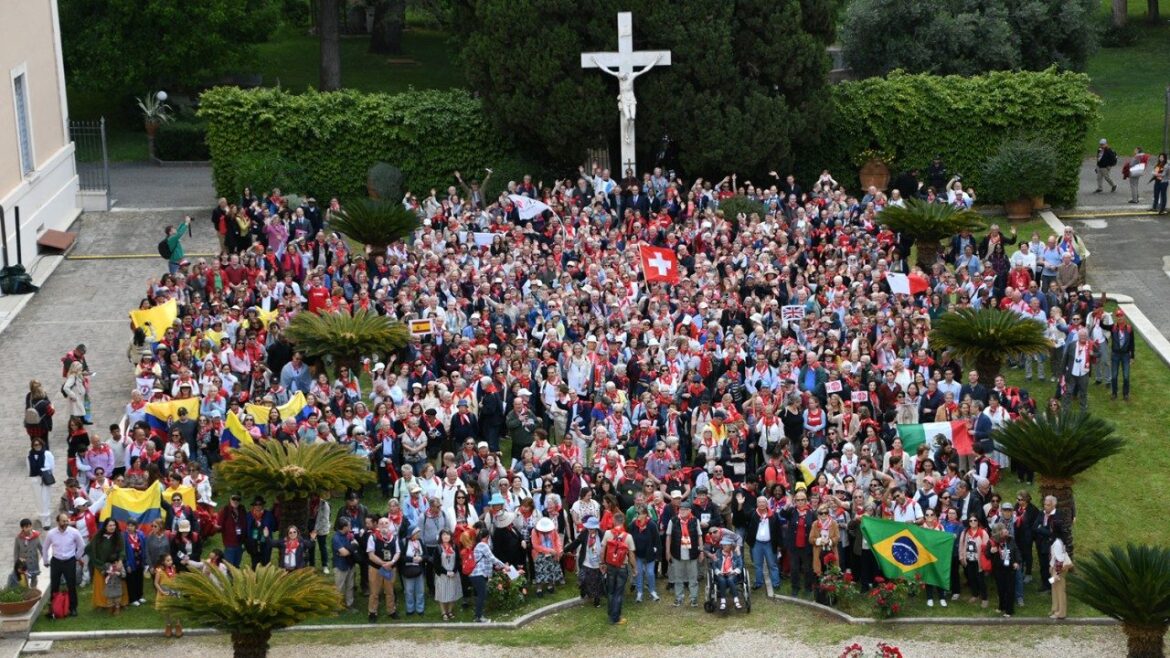The Pontifical Foundation Aid to the Church in Need (ACN) is launching new initiatives to support persecuted Christians and victims of war.
By Fr. Paweł Rytel-Andrianik and Karol Darmoros
The Polish branch of the Pontifical Foundation Aid to the Church in Need is currently developing humanitarian projects in Syria, Lebanon, Nigeria, the Democratic Republic of the Congo, the Holy Land, and Ukraine.
Speaking to Vatican News, its director, Fr. Prof. Jan Witold Żelazny, outlined the details of the Foundation’s continued efforts and commitment.
Hope made tangible
Aid to the Church in Need continues its mission of bringing assistance wherever people suffer from war and persecution. “We want to be present in the places where Aid to the Church in Need has already been working. We cannot leave these people without support now,” said Fr. Żelazny.
In the coming weeks, representatives of the Foundation are planning visits to Syria and Lebanon, where ACN has been rebuilding Christian communities for years.
On 10 October, Aid to the Church in Need representatives met in the Vatican with Pope Leo XIV, who received its report on religious freedom and expressed his gratitude for the organisation’s commitment.
The Holy Father assured that the Church stands beside its persecuted faithful. He also stressed that “religious freedom is not merely a right or a privilege; it is a foundation that makes authentic reconciliation possible.”
Projects on the peripheries
Among the current initiatives of Aid to the Church in Need are projects in the Democratic Republic of the Congo and Nigeria.“These are places where people suffer because of violence and the struggle for natural resources, both a curse and a blessing of that land. This also concerns our assistance projects for Nigeria. Our Day of Solidarity in Poland will be dedicated precisely to Nigeria,” announced Fr. Żelazny.
Among those expected to come to Poland is Bishop John Bakeni, one of the clergy who faced the threat of death for his faith in Christ.
The organisation is also present in Bethlehem, where its volunteers assist the Sisters of St. Elizabeth in caring for children traumatised by war.
“Without this help, Christianity in the Middle East will be destroyed,” admitted the director of the Polish section of Aid to the Church in Need.
Assistance also reaches Ukraine — mainly Odessa and the surrounding areas — despite the ongoing dangers.
“In our activities, we put into practice the teaching of the Church, including the recently published exhortation Dilexi te, on love for the poor,” Fr. Żelazny said.
Whom to support
The Foundation is also running a project in Poland, assisting cloistered convents that have lost their property.
“We continue to send per capita donations and support monasteries that have no means of livelihood (…) The sisters tell us that this is very significant, concrete help,” Fr. Żelazny noted.
The head of the Polish section of Aid to the Church in Need assured that every donation is spent conscientiously and transparently. The Pontifical Foundation in Poland also supports the formation of clergy from Africa and Asia.
“In Cameroon, a bishop told me: ‘Father, if you give me 600 euros more, I can accept one more seminarian.’ We complain about the lack of vocations, while he tells me that the number of candidates he can admit to the seminary depends on the support we provide. This shows how important priestly formation is, both locally and here,” Fr. Żelazny underlined.
A message that calls to action
During the Vatican meeting, the Pope recalled that the work of Aid to the Church in Need was born out of the experience of the Second World War. It is about offering help to “heal wounds and extend hands in peace. It was precisely from this attitude that our mission was born — the Foundation of Forgiveness — a love that not only helps in times of poverty, but also teaches forgiveness,” Fr. Żelazny concluded.

